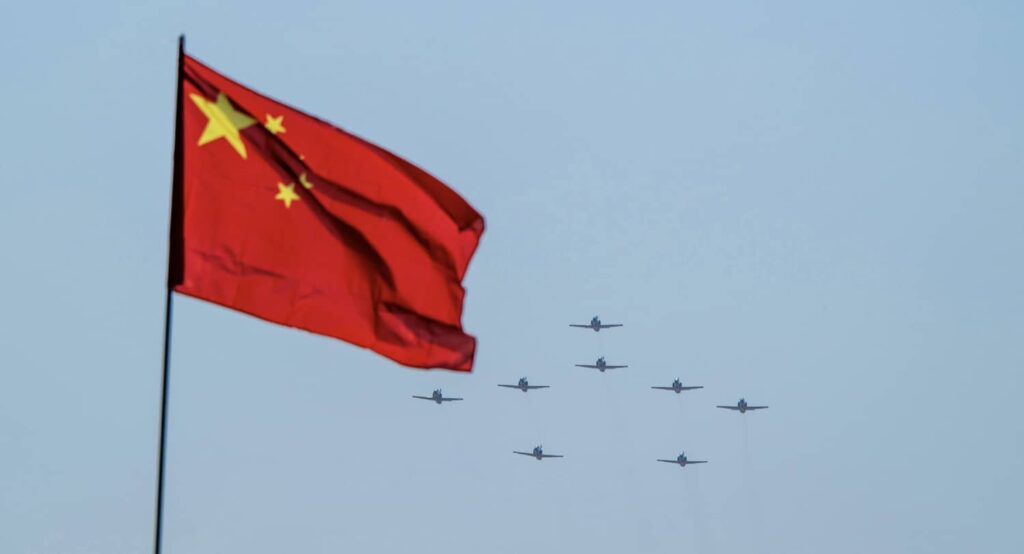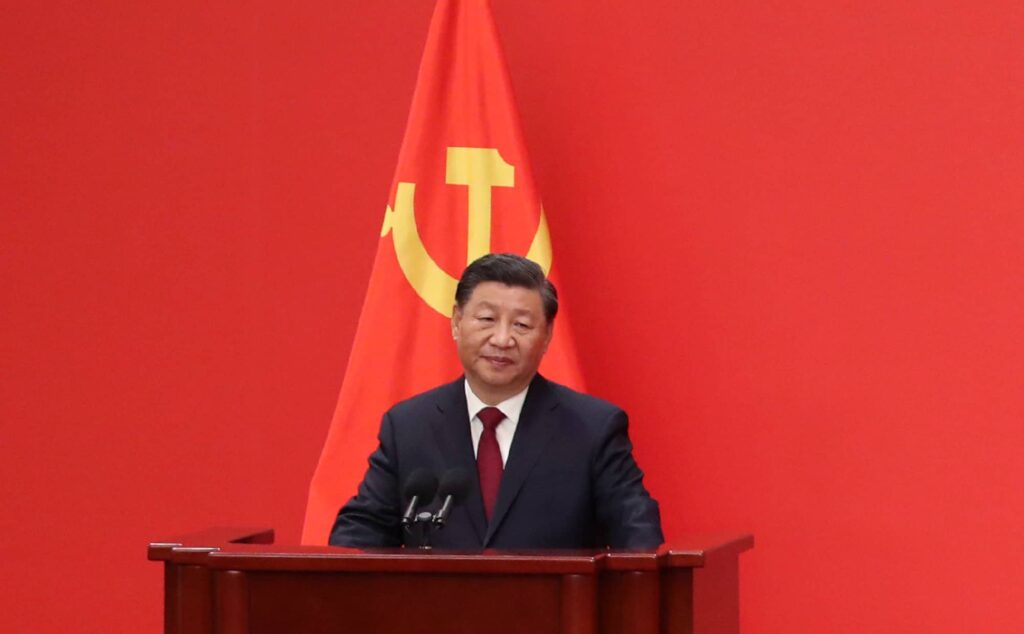The military forces of the People’s Republic are formidable. What are Beijing’s plans for them?

What does China want in the world? Surely no question has greater importance for the year — and indeed the decade — ahead. The country’s communist government has used China’s remarkably rapid economic growth over the last four decades to amass increasingly capable armed forces. Where once it fielded only a large but technologically backward army, the People’s Republic now has, in addition to well-armed ground troops, both naval and air forces of great and increasing sophistication. Its military might ranks at least second in the world, and by all accounts is fast gaining on that of the leader, the United States. It is of considerable global interest to know what the Chinese government plans to do with this formidable power. The answer to that question is surprisingly unclear, perhaps even to the Chinese themselves.
Like all countries, China requires military might to defend itself. Indeed, it has reason to take this task more seriously than most other countries, having been the victim of foreign predation in the 100 years or so before the Communist takeover in 1949, a period the ruling Chinese Communist Party calls “the century of humiliation.” The threat of foreign assault has, however, disappeared. China’s historical tormenters, Great Britain and Japan foremost among them, long ago ceased the kinds attacks they launched against China in the nineteenth and twentieth centuries respectively. Moreover, the possession of nuclear weapons is often regarded as a guarantee of sovereign independence, and the People’s Republic tested its first one sixty years ago, in 1964. The armed forces China has built in this century are appropriate to larger aspirations than mere survival. What might those aspirations be?
Analysts of China’s foreign policy sometimes compare it to a rising great power of the past: Wilhelmine Germany before World War I. Like China today, pre-1914 Germany had experienced rapid economic growth, which made it possible for it to become a major military power. As China seems to be doing now, Germany then challenged the international status quo and in particular the country that was its greatest beneficiary, Great Britain. The British presided over the world’s largest empire, and Germany sought overseas colonies for itself. The British had the world’s most powerful navy, and Germany set out to match it. Germany’s foreign policy at the outset of the last century contributed to the outbreak of the First World War in 1914 – an ominous precedent for the present.
Wilhelmine Germany, however, had a clear, concrete goal: territorial expansion. It did conquer much of the European territory to its east in the course of World War I, before suffering defeat on the war’s western front and having to relinquish its gains. In 2025, the quest for old-fashioned territorial conquest is alive and well, unfortunately, in Moscow, but not, as far as can be determined, in Beijing. True, Communist China is the planet’s last great multinational empire, subjecting Muslim Uyghurs and Buddhist Tibetans to rule by Han Chinese; but it shows no sign of wishing to incorporate additional countries into China. It claims the East China Sea and some islands off Japan, but not the Japanese archipelago itself. It invaded Vietnam in 1979 but did not stay to govern the territories it occupied. China apparently does not aspire to follow in the footsteps of the second German Reich.
Nor does it seek to emulate another ambitious, revisionist power with which it has certain similarities: the Soviet Union after 1945. During the Cold War, Soviet leaders sought to expand their control beyond their borders for the sake of imposing their own political and economic systems, which Lenin had founded and Stalin had consolidated. Twenty-first century China, like twentieth-century Soviet Union, is ruled by a Communist Party that arrogates to itself a monopoly of political power.
By Soviet standards, however, present-day China is very far from being an orthodox communist country, harboring, as it does (and as the Soviet Union emphatically did not) a large free-market sector in its economy.
Thus, if the Chinese were inclined to impose their own systems elsewhere, just what systems would they impose? In fact, the Communist leadership in Beijing has demonstrated no desire to embark on such a project. To the contrary (and in response to sometimes-energetic American efforts at democracy promotion in this century), it has insisted that every country is entitled to decide its own form of government without interference by others.
The Chinese apparently use the United States as their measuring-stick in international affairs, raising the possibility that what China wants in the world is to replace America, taking on the roles that the United States currently plays. Leaving aside the feasibility of such an ambition, achieving it would seem to be of dubious worth to China itself. America upholds two major features of the present-day global order: a relatively open international economic system, and a network of alliances centered on the United States. As to the first, China has reaped enormous benefit from it, profiting greatly from investment from abroad and the availability of foreign markets for the products it manufactures.
The Chinese have benefited from the American-sponsored international economic status quo in two additional ways: by violating its rules to their own advantage – conducting a mercantilist trade policy for example – while paying a very small price for their transgressions, at least until recently; and by not having to pay the costs of the system’s upkeep, the burden of which has fallen most heavily on the United States. In the global economic system, China has not exactly gotten something for nothing, but it has probably come as close to doing so as is possible in a world of jealous, self-seeking sovereign states. Attempting to overturn it would not seem to qualify as a shrewd policy.
As for the American alliance system, its Asian members value it in no small part for the protection it affords them against China itself. They hardly wish to substitute China for the United States in their security policies. If China should drive America out of the Asia-Pacific region, moreover, these allies would likely respond not by submitting to Chinese authority but by finding other ways to defend their sovereignty, the most plausible being the acquisition of their own nuclear weapons. The likely alternative to the American-based security order is not, therefore, one in which China reigns supreme. It is instead a nuclearized East Asia, with South Korea, Japan, and Taiwan as nuclear-weapon states.

Chinese foreign policy does have one clear aspiration: control of Taiwan, which it claims as part of China and thus subject to rule from Beijing – although Beijing has not controlled the island for more than a century and the Taiwanese people strongly oppose such control. Much of the Chinese military buildup is aimed at making it possible for the mainland to subdue Taiwan, either by direct assault or through a punishing blockade.
The claim on Taiwan looms large in Chinese public life because it expresses the most powerful political force in China: nationalism. Chinese nationalism predates communist rule, manifesting itself, for example, in the anti-foreigner uprising in Beijing in 1900 known as the Boxer Rebellion and in the student protests against the ceding of German-controlled Chinese coastal territory to Japan in 1919, an episode known as the May the Fourth Movement. Nationalist sentiment has a particular importance for Xi Jinping and the present Chinese Communist rulers as a source of the regime’s legitimacy at a time when one of the two other historically important sources – Marxist-Leninist-Maoist ideology – has lost whatever popular appeal it once had and the other –rapid economic growth – is decreasingly useful as the country’s rate of economic growth slows.
It is possible that today’s Chinese government has no specific purpose in mind for its armed forces other than the capture of Taiwan. The large scale of its military buildup may stem from the felt need to bring as much force as possible to bear on the task, combined with the influence of the country’s military-industrial complex, which presumably lobbies for generous stipends for defense and finds ways to spend them.
If, however, Beijing should succeed in bringing Taiwan under its control, it would immediately confront the question of what else it might wish to do with the military that it has built. In that case, having exercised its power effectively, having humiliated the United States and perhaps even expelled American forces from the Asia-Pacific region, a victorious China’s global horizons would surely expand. Its appetite would grow with the eating. Many exercises of its military power not currently on the Communist Party’s agenda would suddenly appear both tempting and feasible. There are several good reasons to oppose, and to resist if necessary, a communist conquest of democratic Taiwan. Not the least of them is to avoid giving the Chinese Communist Party the incentive to devise a new and far more expansive answer to the question “What does China want?”
